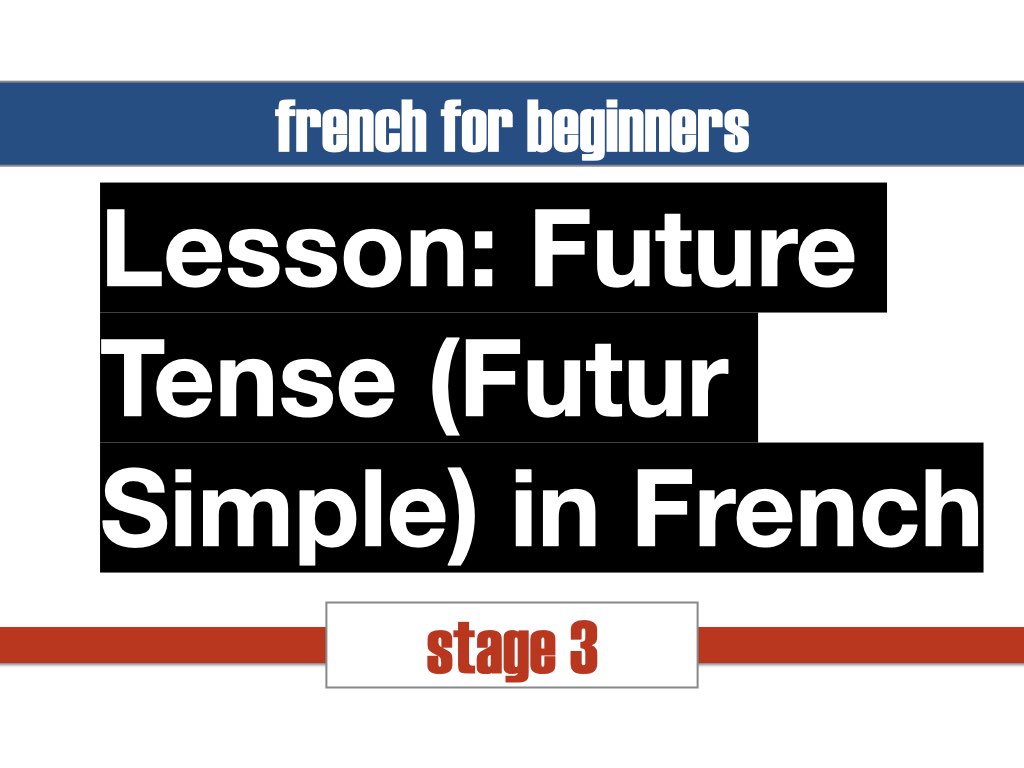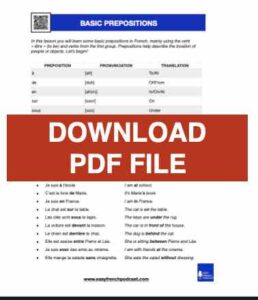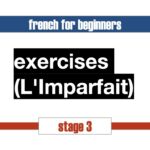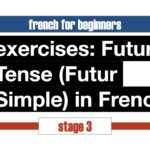Lesson: Future Tense (Futur Simple) in French
Introduction
The future tense, or “le futur simple,” in French is used to talk about future events, actions that will happen after the moment of speaking. This lesson will guide you through the formation and usage of the futur simple, helping you to express your future plans and predictions accurately.
Formation of Futur Simple
The futur simple is formed by adding specific endings to the infinitive form of the verb. However, for -re verbs, you drop the final “e” before adding the endings. The endings are the same for all verbs: -ai, -as, -a, -ons, -ez, -ont.
Here are the endings added to the infinitive ‘parler’ (to speak):
- Je parlerai I will speak
- Tu parleras You will speak
- Il/Elle/On parlera He/She/One will speak
- Nous parlerons We will speak
- Vous parlerez You will speak
- Ils/Elles parleront They will speak
Exceptions and Irregular Verbs:
Some verbs have irregular stems in the future tense but use the same endings. For example:
- aller (to go) becomes j’irai
- avoir (to have) becomes j’aurai
- être (to be) becomes je serai
- faire (to make/do) becomes je ferai
- pouvoir (can) becomes je pourrai
- savoir ( to know ) becomes je saurai
Usage of Futur Simple
The futur simple is used to express:
- Actions that will occur in the future:
- Demain, il pleuvra. Tomorrow, it will rain.
- Promises or decisions:
- Je te promets que je serai là. I promise you that I will be there.
- Predictions or guesses:
- Je pense qu’elle réussira. I think that she will succeed.
Exercises
Exercise 1: Conjugate in the Futur Simple – First Group Verbs
Conjugate the following sentences in the futur simple using first group verbs (ending in -er). Remember, for the futur simple, you typically add the future endings (-ai, -as, -a, -ons, -ez, -ont) to the whole infinitive form of the verb.
- Demain, je (jouer) au tennis.
- Tu (regarder) le nouveau film ce weekend.
- Il (danser) à la fête vendredi soir.
- Nous (manger) dans un restaurant luxueux pour mon anniversaire.
- Vous (travailler) sur un projet important le mois prochain.
- Elles (nager) dans la mer pendant les vacances.
- Je (louer) une voiture pour notre voyage.
- Tu (aimer) sûrement le cadeau que je t’ai acheté.
- Ils (étudier) le français tous les jours.
- Nous (chanter) ensemble à la réunion familiale.
Exercise 2: Conjugation
Conjugate the following verbs in the futur simple:
- Je (finir) mes devoirs.
- Nous (prendre) le train de huit heures.
- Tu (être) surpris.
- Ils (aller) au cinéma.
- Elle (faire) un gâteau.
Exercise 3: Translation
Translate the following sentences into French using the futur simple:
- I will travel to France next year.
- You will learn a lot.
- He will not forget this day.
- We will see our friends tomorrow.
- They will sell the house.
Conclusion
The futur simple is a fundamental part of French grammar that allows you to express future intentions, predictions, and promises. By understanding its formation and uses, you can effectively plan and discuss future events in French. Continue practicing these forms to enhance your proficiency and confidence in using the futur simple.



